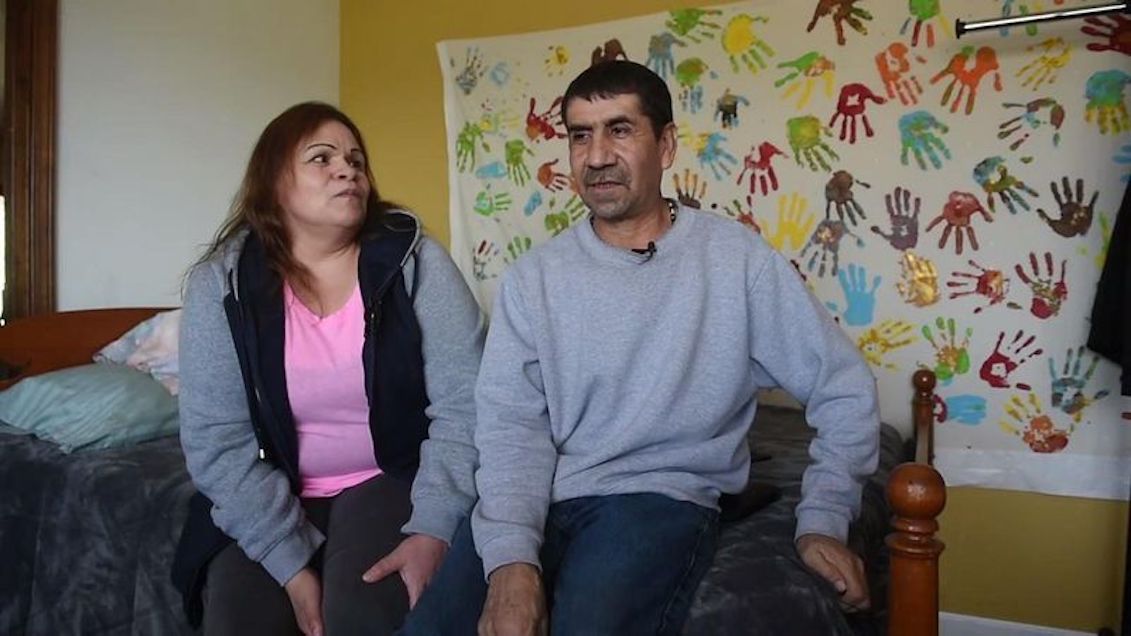
Due to a health problem, he preferred to seek sanctuary before being deported
David Chávez-Macias sought refuge at the Unitarian Universalist Fellowship in northern Nevada, after learning he could be deported.
Despite having always done what he considered correct - applying for work permits, paying his taxes, having a social security number and a driver's license - David received a final deportation order in April. But his medical condition made him think twice about the decision he had to make.
In a report originally published in Politico, the story of David Chavez-Macías is that of many other immigrants who came to the United States in search of a better future, fleeing the adversities of their places of origin and doing their best to contribute to the country that has received them.
After spending thousands of dollars on lawyers for decades, and having received his work permits, the surprise of imminent deportation led David and his wife to seek refuge at the Unitarian Universalist Fellowship in southern Reno, which has given shelter to another undocumented immigrant in 2016. His wife did not want to leave him alone, since they have never spent a night apart.
"Chavez-Macias still carries in his wallet a work permit that is valid until August 17, but the document appears to mean little in an uncertain world where arrests of undocumented immigrants are up year-over-year nearly 40 percent in the first four months of 2017”, the report said.
David Chávez-Macias has raised his four children in the country, who have graduated from Wooster High School and he attends Little Flower Church on Sundays. He is also famous in his community for cooking "carnitas". Despite having no criminal history, he is under risk of being deported.
James Schwab, an ICE spokesman in San Francisco, said that,"Our officers prioritize cases based on a variety of factors, including the person's criminal and immigration history, as well as the viability of the leads we have on the individual's possible whereabouts,"
It is no secret that the latest ICE detention data shows that arrests of undocumented citizens with no criminal record have doubled in the first four months of 2017 compared to 2016.
“Homeland Security Secretary John F. Kelly said that immigration officials are no longer exempting any person from removal if they are found to be in the country illegally”, the report continues.
This is the case of Chávez-Macias, who, beyond a parking ticket, has never had any encounter with the law and has led a quiet life.
It was a traffic ticket that put David Chavez-Macias on the radar of immigration agents. After arriving in the United States across the border, and obtaining his first work permit, David immediately sought an attorney in 1995 to begin his citizenship process, paying up to $ 5000 for legal advice that did not settle his case.
On March 16, 2013, he was fined for crossing a red light at Kietzke Lane.
“According to Chavez-Macias, the officer asked him, ‘Are you the monkey in this picture?’”
After the detaining, he spent three months under arrest, after which he was granted house arrest for his heart condition.
RELATED CONTENT
It was his state of health that convinced him to make the decision to take refuge.
David was diagnosed 20 years ago with Marfan syndrome (a disease that affects 1 in 5,000 people and causes an abnormality in the connective tissue, affecting mainly the heart and blood vessels), which in turn has produced atypical growth of the aorta artery, which should replace the valve of the heart and that must be operated again in a few years.
If Chavez-Macias is deported to Mexico, he could lose his life due to lack of access to adequate treatment.
The case of his family is not very different. According to the report, his wife, Leticia Guillén, is also an undocumented immigrant, although her brother applied for her citizenship 15 years ago. For their part, their 30, 29, 26 and 23 year old children came to the country as kids and are under the protection of the Deferred Action for Childhood Arrival (DACA) program, but must renew it every two years and, following the measures of the new Administration, they fear that their future will not be very different from that of their father.
After the arrest and the impossibility of obtaining a legal adviser who could take his case and guide him successfully - and despite having a work permit in order - the day that Chávez-Macias received the letter in which his case was denied by immigration and was due to appear in the offices on April 5, he decided to seek sanctuary.
"As I no longer had permission to work or a lawyer, I was afraid that if I appeared at the April 5 rendezvous, I would be deported," he said.
But it's not all tragedy.
Immigration attorney Dee Sull of Las Vegas has taken his case pro-bono through the American Immigration Lawyers Association. She has asserted that Chávez-Macías’ case is complicated by years of poor counseling.
"I am the sixth person, attorney, in his life," she said. "He's a simple man, not complicated, who along the way never understood."
And although there are no guarantees, Sull will use all resources at hand to get David Chavez-Macias back home with his family.











LEAVE A COMMENT: